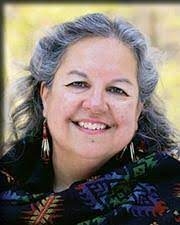
Nationalité : États-Unis
Ajouter des informations
Biographie :
Robin Wall Kimmerer est un professeur américain distingué de biologie environnementale et forestière; et directeur du Centre pour les peuples autochtones et l’environnement du Collège des sciences de l’environnement et des forêts de l’Université d’État de New York.
Robin Wall Kimmerer est un professeur américain distingué de biologie environnementale et forestière; et directeur du Centre pour les peuples autochtones et l’environnement du Collège des sciences de l’environnement et des forêts de l’Université d’État de New York.
Ajouter des informations
étiquettes
Citations et extraits (4)
Ajouter une citation
In the old times, our elders say, the trees talked to each other. They’d stand in their own council and craft a plan. But scientists decided long ago that plants were deaf and mute, locked in isolation without communication. The possibility of conversation was summarily dismissed. [...] There is now compelling evidence that our elders were right—the trees are talking to one another. They communicate via pheromones, hormonelike compounds that are wafted on the breeze, laden with meaning. Scientists have identified specific compounds that one tree will release when it is under the stress of insect attack—gypsy moths gorging on its leaves or bark beetles under its skin. The tree sends out a distress call: “Hey, you guys over there? I’m under attack here. You might want to raise the drawbridge and arm yourselves for what is coming your way."
Children, language, lands: almost everything was stripped away, stolen when you weren’t looking because you were trying to stay alive. In the face of such loss, one thing our people could not surrender was the meaning of land. In the settler mind, land was property, real estate, capital, or natural resources. But to our people, it was everything: identity, the connection to our ancestors, the home of our nonhuman kinfolk, our pharmacy, our library, the source of all that sustained us. Our lands were where our responsibility to the world was enacted, sacred ground. It belonged to itself; it was a gift, not a commodity, so it could never be bought or sold.
It’s such a simple thing, but we all know the power of gratitude to incite a cycle of reciprocity. If my girls run out the door with lunch in hand without a “Thanks, Mama!” I confess I get to feeling a tad miserly with my time and energy. But when I get a hug of appreciation, I want to stay up late to bake cookies for tomorrow’s lunch bag. We know that appreciation begets abundance. Why should it not be so for Mother Earth, who packs us a lunch every single day?
We are linked in a co-evolutionary circle. The sweeter the peach, the more frequently we disperse its seeds, nurture its young, and protect them from harm. Food plants and people act as selective forces on each other’s evolution—the thriving of one in the best interest of the other.
Les Dernières Actualités
Voir plus
Quiz
Voir plus
L'as De Cœur
De quel origine est Rose?
Italiene
Espagnole
Française
Russienne
12 questions
12 lecteurs ont répondu
Thème : L'as de coeur de
Morgane MoncombleCréer un quiz sur cet auteur12 lecteurs ont répondu






















